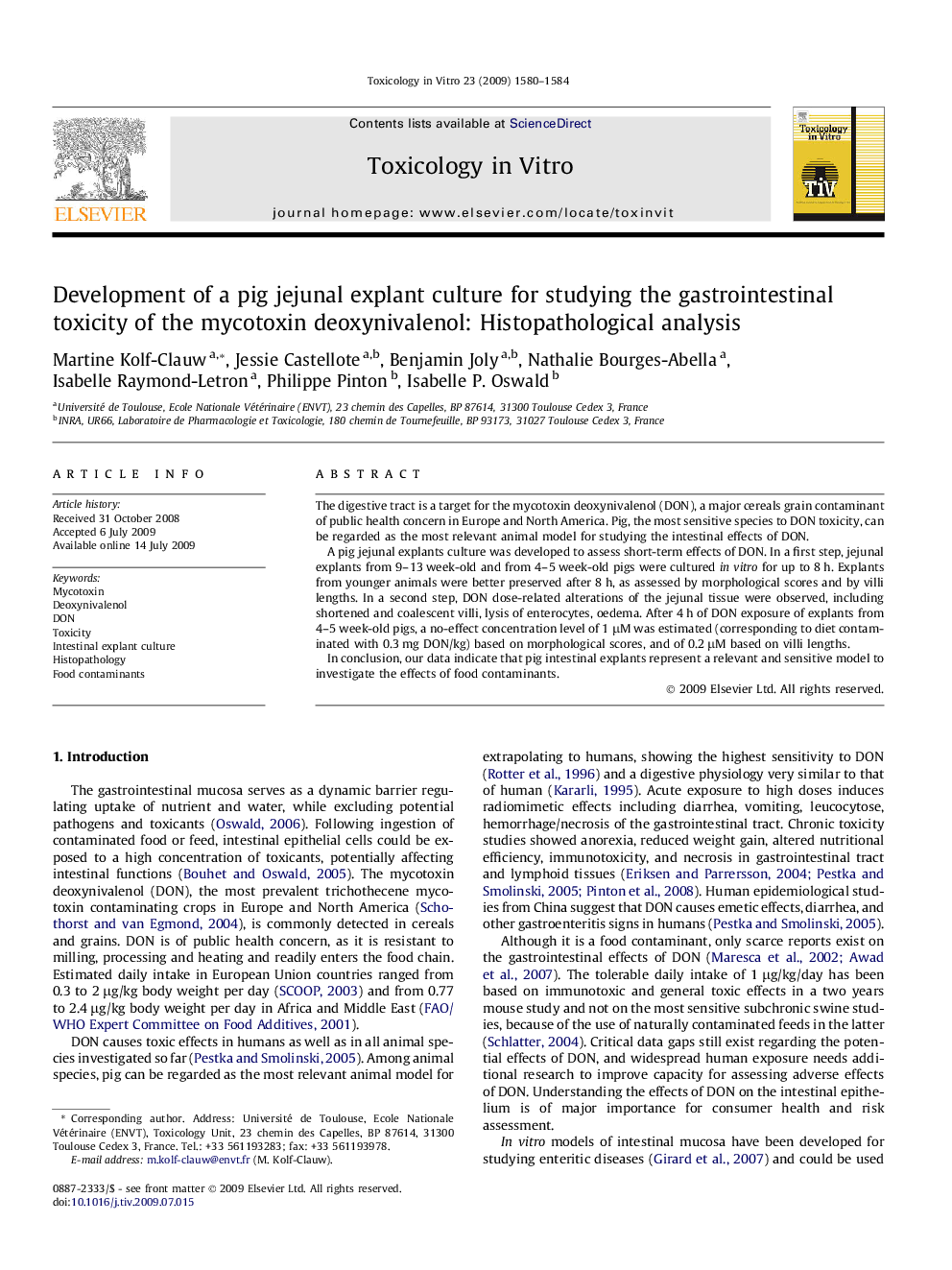| کد مقاله | کد نشریه | سال انتشار | مقاله انگلیسی | نسخه تمام متن |
|---|---|---|---|---|
| 2602653 | 1133791 | 2009 | 5 صفحه PDF | دانلود رایگان |

The digestive tract is a target for the mycotoxin deoxynivalenol (DON), a major cereals grain contaminant of public health concern in Europe and North America. Pig, the most sensitive species to DON toxicity, can be regarded as the most relevant animal model for studying the intestinal effects of DON.A pig jejunal explants culture was developed to assess short-term effects of DON. In a first step, jejunal explants from 9–13 week-old and from 4–5 week-old pigs were cultured in vitro for up to 8 h. Explants from younger animals were better preserved after 8 h, as assessed by morphological scores and by villi lengths. In a second step, DON dose-related alterations of the jejunal tissue were observed, including shortened and coalescent villi, lysis of enterocytes, oedema. After 4 h of DON exposure of explants from 4–5 week-old pigs, a no-effect concentration level of 1 μM was estimated (corresponding to diet contaminated with 0.3 mg DON/kg) based on morphological scores, and of 0.2 μM based on villi lengths.In conclusion, our data indicate that pig intestinal explants represent a relevant and sensitive model to investigate the effects of food contaminants.
Journal: Toxicology in Vitro - Volume 23, Issue 8, December 2009, Pages 1580–1584